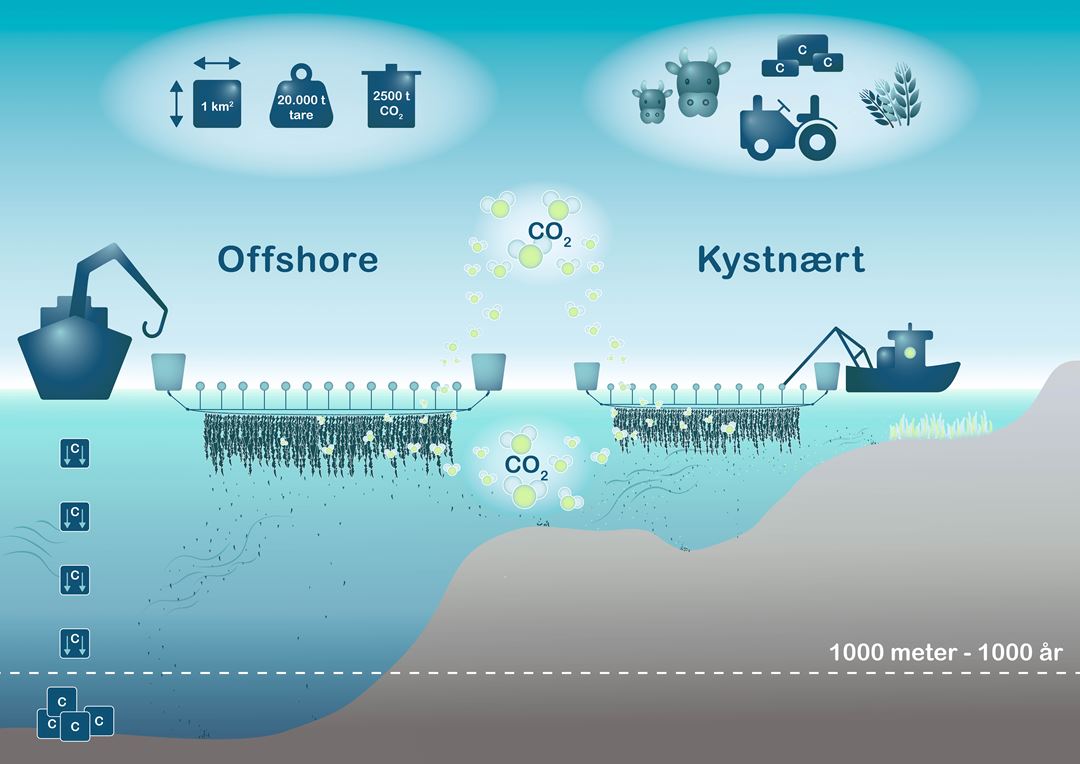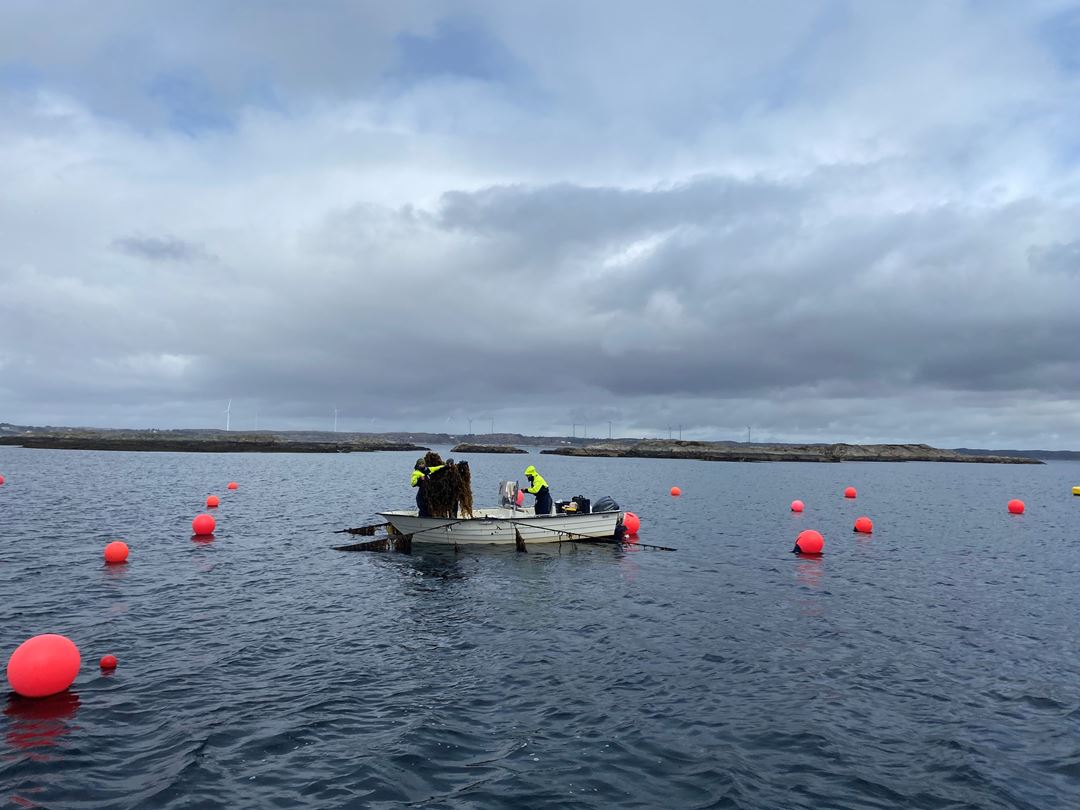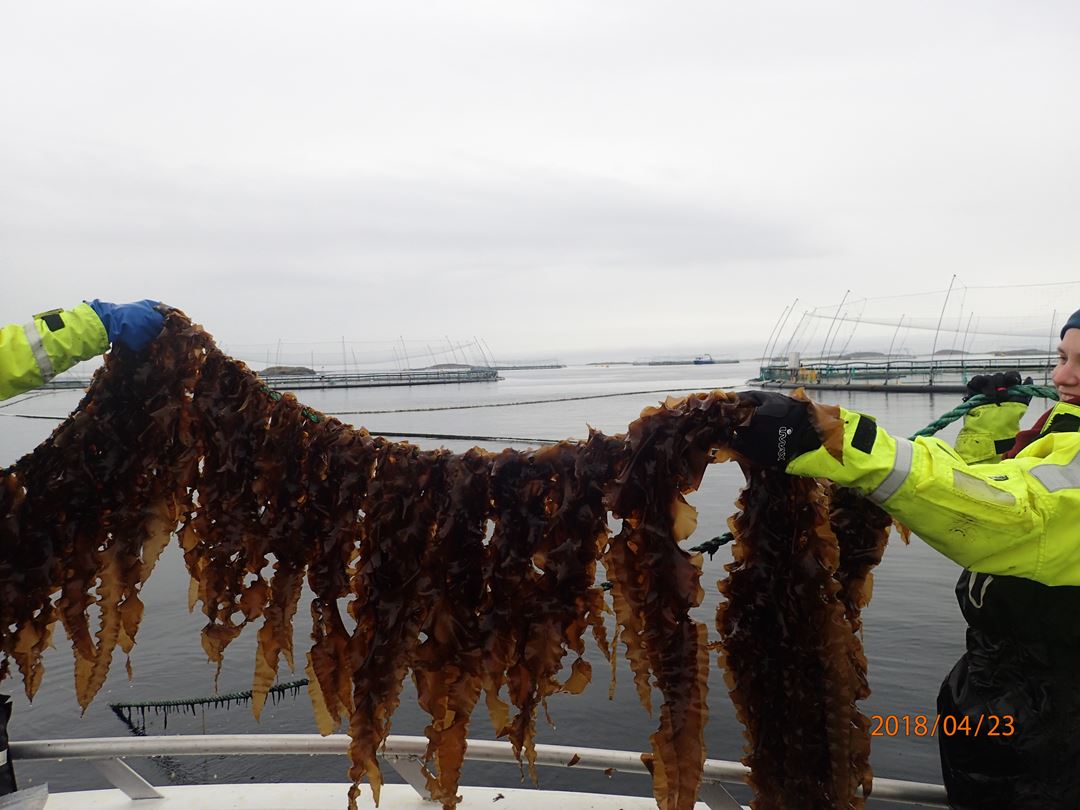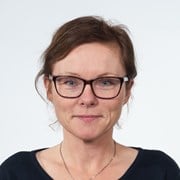The project looks at cultivating large amounts of sugar kelp on long ropes connected to buoys set out to sea. The facilities will be placed in areas with a natural capacity for kelp cultivation. With the help of photosynthesis, the kelp will utilise the sunlight to grow and bind carbon from the atmosphere. This is the same process trees and plants perform on land. After approximately six months in the ocean, the kelp will have bound the maximum amount of CO2 and is thus ready for harvesting and further processing for carbon storage (see fact box for more details).

Climate goals and green workplaces
Carbon capture is essential for ensuring that the world reaches its climate goals and curbs global warming in line with the Paris Agreement. Project partners expect that kelp cultivation can make a significant contribution to the climate due to its effectiveness as a method and its large potential for eventual upscaling.
“In order to solve the major climate challenges our planet is facing, we need research - not just in order to reduce CO2 emissions, but also to remove emissions that already exist in the ocean and the atmosphere. This is a concept where the possibilities for upscaling are very promising. Together with strong partners, we are working to reach solutions that can swiftly make a real difference for the climate crisis,” says SINTEF Ocean CEO Vegar Johansen.

Carbon capture with kelp can work successfully in many places throughout the world, giving the technology a significant potential for upscaling and export, which can lead to new, green workplaces in Norway and abroad.
“The world needs technologies for making large-scale carbon capture a reality. Norway currently has the opportunity to take technology leadership here and create export possibilities. As a country, we have the natural prerequisites, together with the competency and experience needed to develop and realise this technology. We in DNV look forward to contributing on many fronts,” says Remi Eriksen, CEO for DNV.
Large-scale Norwegian-technology collaboration
The project, Seaweed Carbon Solutions, started in April 2022. The pilot project will run until 2024, and from 2025, the project is planned to transition into a commercial upscaling phase with one or more large facilities off the coast of Trøndelag. The goal is then to demonstrate the potential of the upscalable technology for carbon capture on an industrial scale. The project has over 30 million NOK at its disposition over three years (pilot phase) and will be led by SINTEF and DNV, with Equinor and Aker BP as main partners. NIVA will participate as a research and innovation partner, and the UN Global Compact and Rev Ocean will participate as advisors in the project.
Fact box
Two alternative use cases for kelp will be tested:
- Bio-coal: Harvested kelp goes through a pyrolysis process where it is blended with composted kelp and soil, before being used for soil improvement. The process gives environmentally friendly and nutrient-rich fertilizer, at the same time as carbon is stored safely and securely in the ground.
- Storage in the ocean floor: Harvested kelp is sunken to the ocean floor at areas deeper than 1000 meters. At such depths, the material mixes with surface water at a very slow rate, and the material thus remains in the sediments. This means that greenhouse gasses aren’t released into the atmosphere again.
The project will research and develop new knowledge and technology throughout the entire value chain. This includes the environmental effects of large-scale kelp cultivation and carbon storage, which will be studied as a part of the pilot project.
For more information, please contact:
- SINTEF Ocean
Jorunn Skjermo, senior researcher
Telephone: 982 45 040
E-mail: - DNV
Ellen Skarsgård, Head of Sustainability Development and Climate
Telephone: 414 21 168
E-mail:


